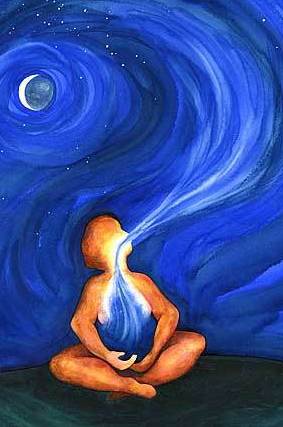We all have experienced it!
We are feeling great, energetic and life is good.
And WHAM we are hit with a stressful situation and we feel like the rug is pulled out from us and we collapse with exhaustion.
The hormone cortisol, also called the stress hormone is being pumped through our bodies as it has been being done for thousands of years.
A very important hormone, cortisol is secreted by the adrenal glands and is involved in many bodily functions.
It assists in proper glucose metabolism, regulation of blood pressure, our immune system, as well as being involved in the inflammatory response.
Small amounts of cortisol provide us with quick bursts of energy in survival situations. Cortisol also will heighten memory functions as well as lower our sensitivity to pain.
It is vital that our bodies return to normal functioning as quickly as possible as higher and more prolonged levels of cortisol will have a negative impact on us.
As our cortisol levels rise the opposite effects begin to happen such as impaired cognitive functions, suppressed thyroid function, and higher blood pressure.
Our immune responses are lessened, greatly affecting our ability to heal wounds as well as having increased health consequences in other areas of the body.
We all know the term, Fight or Flight, though this has been expanded to now be, Fight, Flight, or Freeze.
It is our default response to stress. No matter how minor the stress we will typically respond with either Fight, Flight, or Freeze.
With this our bodies pump out cortisol and will continue to do so until we find a way to return to a relaxed state.
In the mean time we are exhausting our energy bank.
This is why after a stressful situation we are exhausted. We might have just as well as run a marathon and our bodies feel as if we did, only without the satisfaction of a right movement.
We have stress all around us. It seems as if it is getting worse and not better. We need better ways of being with ourselves and the world to minimize our Fight, Flight, or Freeze reactions.
One method is to train ourselves to be always aware of our breathing.
When we breathe deep into the belly we soothe the nervous system and calm the cortisol releases.
In fact, as we work with our breathing we find we can calm most stress down immediately before it has a chance to increase simply by focusing our breathing into our bellies.
Here is an exercise you can do easily.
Lie down comfortably. Have one hand on your belly and the other on your chest. Now breathe and notice which of your hands is moving.
If you are breathing deep into your belly only your stomach hand will move.
If your chest hand is moving, as it will for most people then you are not breathing correctly to stimulate the relaxation response needed to calm the cortisol releasing and in turn the Fight, Flight, or Freeze response.
This deep belly breathing stimulates the Parasympathetic Nervous System, which regulates rest, decrease heart rates, muscle relaxation, and helps restore the body to a state of calm.
Once you have worked with the breathing you can apply this technique anytime and anywhere whether you are on a bus, at work, in the grocery line, or on a new adventure.
The key is to keep monitoring our breathing. To keep checking in that our breath is deep in the belly and not stuck in our upper chest.
Fear will keep the breathing shallow and limited. Breathing deep into the belly will calm fear down and help bring you back into the here and now to make right choices and decisions.
In terms of our energy bank, energy oozes out of us when we are not breathing correctly and we are then depleted and more susceptible to exhaustion and fatigue, which makes us more vulnerable to the slightest stress, which just depletes us even more.
It is no wonder that exhaustion is at such epidemic proportions.
It is no wonder as why so many are addicted to caffeine and other quick energy drinks.
Unless we find a mechanism that works to calm stress in our lives we are going to pump out cortisol (the stress hormone) until we literally collapse from exhaustion.
But first we will begin to experience symptoms such as an impaired immune system and more frequent sick days. We will get more colds and flus. We will not heal as quickly from simple cuts or bounce back as quickly from an illness.
We will react even more quickly to stress since our brain’s functioning is being impaired.
I believe that a simple change in how we breathe can have a huge impact on our energy levels, general body health, brain function, digestion, sleep, and virtually any other physical and emotional dis-ease we might be struggling with to heal.
Give this a try. While in bed at night and again first thing in the morning have one hand on your belly and one on your chest and breathe so that only the belly hand moves and I know you will sleep better and you will wake up more relaxed.
And because we release more cortisol first thing in the morning then we tend to other times of the day, it is a good practice to start the day breathing, slowly and deeply.
As we are seeing having energy is about bringing harmony into many areas of our lives; enough water, the right foods, plenty of rest, and correct breathing as a start.
- If you are exhausted a lot ask yourself…
- Am I drinking 2-3 liters of water a day?
- Am I feeding myself the right fuel?
- Do I get enough sleep? At least 7-8 hours a night!
- Is my belly moving when I breathe or am I holding my breath tight in my chest?
You can have more energy, improved health, and a better quality life filled with creativity and more joy.
“Feeling come and go like clouds in a windy sky. Conscious breathing is my anchor.” Thich Nhat Hanh
Together Our Hands Are Joined To Heal One Another…
Alexander Gardener
The Lymph Guy
thelymphguy.com
thelymphguy@gmail.com



